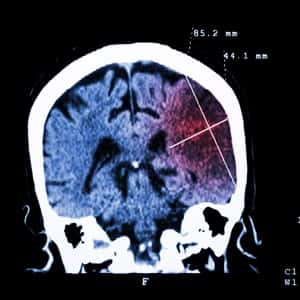
Doctors have long recognized that people who have suffered a stroke are prone to depression. You might think this is only natural: after all, they are adapting to a situation in which some of the abilities they previously took for granted, such as speech or use of a hand or leg, are no longer easily accessible. Anyone would grieve such losses.
The next question might be whether antidepressants can help people with stroke rehabilitation. This reader offered a personal observation:
Q. I am currently taking antidepressants and was taking them when I had my stroke. My deficits were minor and the EMTs and doctors were surprised at the speediness of my recovery. Could antidepressants have protective effects?
SSRI Antidepressants May Benefit Stroke Survivors:
A. Research has shown that when antidepressants like escitalopram (Lexapro) were given after a stroke, patients recovered cognitive skills and memory faster than patients on placebo (Archives of General Psychiatry, Feb. 2010).
A more recent investigation confirmed your experience. People taking SSRI-type antidepressants (fluoxetine, paroxetine, sertraline, etc) prior to their stroke had better outcomes than patients given such drugs after the stroke occurred (Journal of Stroke and Cerebrovascular Diseases, Aug. 2015). A review of the available research concludes that these drugs reduce anxiety, disability, depression and neurological impairment after a stroke, though bigger and better trials are needed to confirm the initial results (Cochrane Database of Systematic Reviews, Nov. 14, 2012).
Only SSRI Antidepressants Help with Stroke Rehabilitation:
Not all antidepressants are created equal in this regard, however. A study in Taiwan showed that people taking older tricyclic antidepressants such as amitriptyline or imipramine were at greater risk of a second stroke (Journal of Clinical Psychiatry, July, 2015).
As further support to the potential benefit of SSRI-type antidepressants, a Danish study showed that stroke victims who were treated early with such antidepressants were less likely to die early, even if their stroke damage was severe (Cerebrovascular Diseases, online July 11, 2015).

